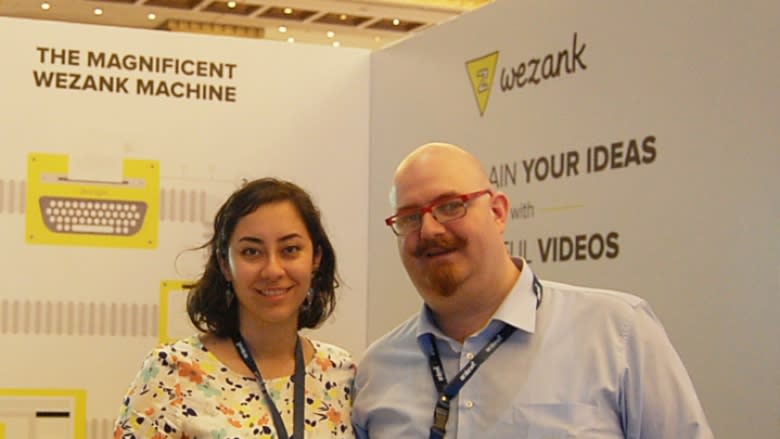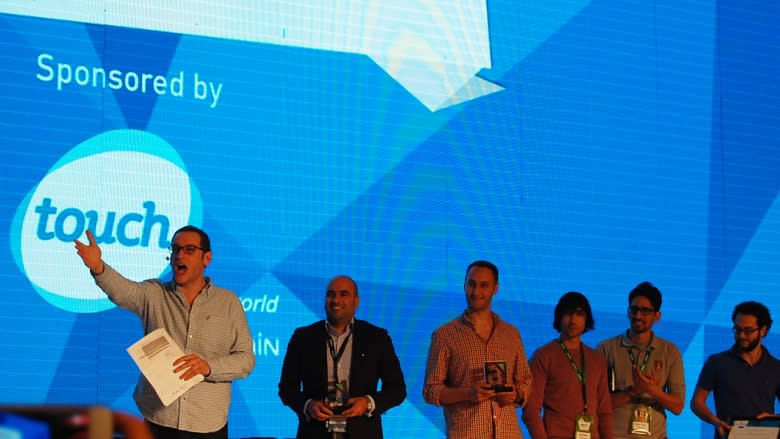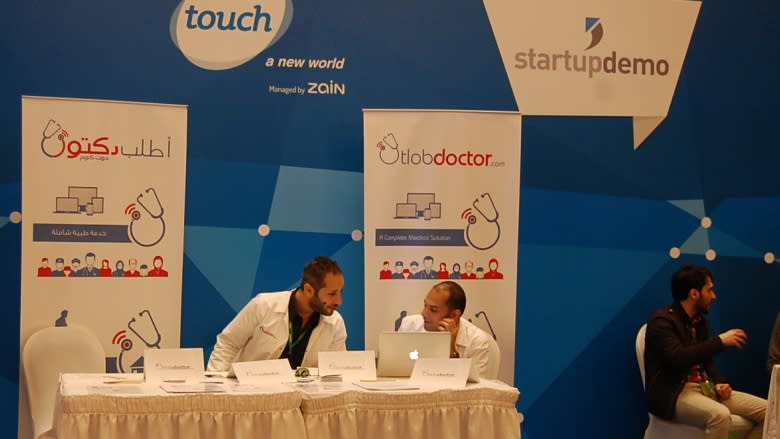ArabNet showcases 'transformative force' of Mideast tech sector
It’s fair to assume that when the average westerner thinks of Beirut, they’re more likely to picture sectarian conflict than digital innovation.
But a technology conference held in the Lebanese capital last week showed that the region is becoming a hub for all things digital, thanks to a young, educated and resourceful population eager to solve its many problems.
Kelly Hoey, a New York-based Canadian who founded the startup accelerator Women Innovate Mobile, cited the quality of education in the Middle East and a plethora of advanced degrees in fields such as engineering as a major reason this region is one to watch for innovation.
“That is a massive, massive advantage that this region should take hold of," said Hoey, speaking on a panel discussion at ArabNet.
"In the U.S., where I now live, and Canada, where I’m from, we have a talent shortage of tsunami level that’s about to hit us because we can’t produce enough engineers.”
ArabNet, which just wrapped up its sixth edition, is one of the largest forums for the Middle East’s burgeoning tech startup industry.
The region's e-commerce market is estimated to reach 15 billion US this year.
“The digital sector in the Middle East has gone from being the focus of a few geeks to being a transformative force at the top of the agendas of the region’s leading CEOs and government leaders,” said Omar Christidis, the conference's founder and CEO, in his opening address on March 18.
A 31-year-old Yale graduate, Christidis – who is of Greek, Syrian and Palestinian origin – presided over an event that brought together around 80 speakers, 40 sponsors and partners and 700 attendees.
Among them were some of the Middle East’s best and brightest entrepreneurs and most influential investors and venture capitalists, as well as Lebanese government officials and international powerhouses from the digital field, such as Microsoft and UKTI Investment Services.
More than 'a few geeks'
In Beirut’s Grand Habtoor Hotel, people browsed a tech fair and attended panels, talks and workshops that touched on a diversity of topics, from how indie musicians can benefit from digital platforms to the importance of social media for connecting governments to their constituencies to the role of technology in advertising.
Entrepreneurs presented their ideas and startups in three competitions judged by industry leaders. Three major funds were announced, including 71 million US for Beirut- and Dubai-based firm Leap Ventures, which aims to invest between three and seven million US in three regional startups a year.
Over the last few years, international entrepreneurs and investors such as Christopher Schroeder have been arguing that young people in the Middle East have the means to create large-scale socio-economic transformations in the region.
From meeting the demand for Arabic-language web content and online payment systems to finding more efficient ways of accessing healthcare services, there are plenty of issues to address.
At ArabNet, young entrepreneurs introduced many ideas for applications aimed at improving the quality of life in a chaotic Middle East.
One example was the mobile app Safe Drive from Egypt, which informs drivers about potholes and other safety hazards along their routes. Another was Fawateri from Bahrain, an Arabic-language bill payment system for small businesses that can incorporate local and international currencies.
Highly educated youth
Schroeder and others cite a population of 100 million people under the age of 15, a rapid rise in internet and smartphone penetration and a highly educated youth with degrees in fields such as computer science and engineering as evidence that the region holds great entrepreneurial potential.
In her talk, Hoey emphasized the abundance of female talent in particular. “The fact that there are so many [science, technology, engineering and mathematics] degrees in this region that are going to women is something it should capitalize on.”
There were plenty of female entrepreneurs in attendance at ArabNet. One of them was Maya Zankoul, a Lebanese graphic designer who was promoting her latest venture, Wezank.
The company produces charming explainer videos that introduce products or initiatives, satisfying a growing demand in the Middle East for easily digestible audio-visual guides.
So far, Wezank’s portfolio includes a guide to enrolling in Nestlé’s Fitness Arabia challenge and infographics for Lebanon’s Ministry of Economy and Trade.
Myriad apps
The fair introduced several small-scale initiatives, such as Sirius from Egypt, an app for light painting, which uses light sources to manipulate photographs. It also had devices with broader appeal, such as a tap-to-pay bracelet from Lebanon’s Bank Audi.
Meanwhile, the Startup Demo, Ideathon and Creative Combat competitions pitted budding business ideas against one another.
Among the winners was a matchmaking app called MySportner, which was created by Morocco's Kenza Bennani, a running enthusiast who came up with the idea when she couldn’t find anyone to train with for a marathon.
The winner of the Startup Demo competition was Egypt's Otlobdoctor.com, an online medical directory developed by resourceful local doctors. It provides what the company refers to as a "complete medical solution," including access to doctors’ resumes, the option to request a house visit, ratings and the ability to notify paramedics of one’s exact location through GPS.
Since its founding in 2009, Christidis explained that 40 per cent of entrepreneurs who pitched at ArabNet went on to meet investors. Seventy per cent gained new clients and 80 per cent received media exposure.
Speaking at the event, the British ambassador to Lebanon, Tom Fletcher, called the work of the region’s startup industry, its entrepreneurs and their patrons revolutionary.
“The people who want you to fail,” he said, “are the extremists, warlords, kleptocrats and securocrats, because you’re a threat to all of them. But be in no doubt, you will win, because you move faster than anyone else…This ArabNet conference is where power is right now.”




